Leading globally impactful cancer research and training
Global Oncology is an interdisciplinary program at Fred Hutchinson Cancer Center that investigates globally relevant cancers and related diseases. The Global Oncology annual report for fiscal year 2023 (July 1, 2022-June 30, 2023) provides an overview of research progress and scientific achievements, training initiatives, grants and finances and lab and facility operations. The report highlights the Global Oncology and Hutchinson Centre Research Institute of Uganda teams and community. We are thankful for our dedicated leaders and staff, our collaborators at the Uganda Cancer Institute, fellows and trainees, research participants and for Fred Hutch’s support.
Vision
Eliminate cancer and related infectious diseases as causes of human suffering and death worldwide.
Mission
Generate cancer and related infectious disease research with global impact and support the development of research and clinical capacity in low-resource settings.
Our Commitment to Diversity
Lifesaving research demands more than innovation and dedication. It requires curiosity, creativity, and fresh and varied perspectives. That’s why diversity is a core Fred Hutch value that is integral to our work.
We were the first U.S. cancer center to pledge commitment to CEO Action for Diversity and Inclusion, and we cultivate a workplace that welcomes diverse perspectives and experiences. The DEI Core — in partnership with an executive council of senior leaders and an employee advisory group — leads our efforts to build a fully inclusive and informed workforce.
Fred Hutch is an equal opportunity employer that is committed to workforce diversity. We strongly encourage applications from women, minorities, individuals with disabilities and veterans.
Dear colleagues,
As another fiscal year ends, I remain excited about the impact of our cancer research and training programs through our collaboration with the Uganda Cancer Institute (UCI) and for opportunities to build new partnerships.
Over the past year, we continued our research on high-burden cancers in Uganda – including Kaposi sarcoma, breast cancer and lymphoma as well as on infections in cancer patients such as bacteremia and antibiotic-resistant infections. Notably, our research is transforming cancer diagnostics, and through a few of our studies and a new National Institutes of Health D43 training grant, we are building a robust cancer genomics program. The winding down of SARS-CoV-2 virus as a global emergency has permitted me to spend fruitful and valuable time at the UCI-Fred Hutch Cancer Centre. Since the start of 2023, I have been working closely with the research teams in Kampala. I continue to be inspired by our team’s dedication and ability to take on new research challenges and training.
Together with UCI, our established training programs continued through the East African Adult Hematology-Oncology (AHO) Fellowship Program and the NIH D43 training grants focused on physician-scientist training. Two UCI-Fred Hutch Collaboration fellows recently received their PhDs in the HIV-associated malignancies training program. Further, another two AHO Fellowship graduates received scholarships to attend the 2023 American Society of Clinical Oncology (ASCO) Annual Meeting in June. Our training continues to expand with the new D43 cancer genomics training program, for which I am excited to report that we have received more than 200 applicants from five East African countries. Application review is underway, and the most competitive applicants will be invited for in-person interviews. The first cohort of trainees will be selected from this group and will begin their training later in 2023.
While we experienced challenges to our operations, such as navigating an outbreak of Ebola virus disease in Uganda, our program’s commitment to global cancer research is unwavering. I am optimistic about the future of our Global Oncology program. This coming year, I hope to involve more Fred Hutch faculty and other organizations to advance important global cancer priorities – given the growing cancer toll in low- and middle-income countries.
Lastly, none of this work would be possible without the talented and dedicated teams behind this effort. I am thankful to our faculty, staff in Kampala with the Hutchinson Centre Research Institute of Uganda, colleagues and collaborators at Fred Hutch, UCI and elsewhere, and our Fred Hutch Global Oncology team. As most of you know well, the continued deep inequities in cancer outcomes between well-resourced and under-resourced settings underscore the importance of this work. We are resolved in carrying out our mission: to generate cancer and related infectious disease research with global impact and support the development of research and clinical capacity in low-resource settings.
On behalf of Global Oncology leadership, thank you for supporting our science and training and the global cancer effort more broadly.
Sincerely,

Edus H. Warren, MD, PhD
Global Oncology Program Head
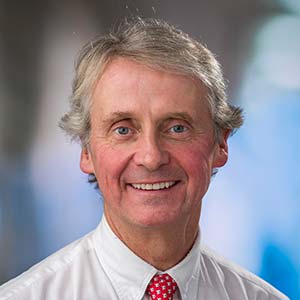
Edus H. Warren, MD, PhD
Global Oncology Head
Professor, Program in Immunology, Clinical Research Division
Professor, Vaccine and Infectious Disease Division
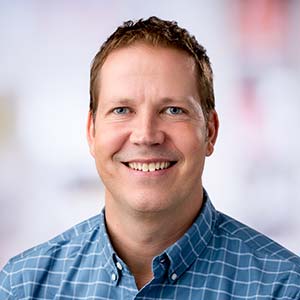
Warren T. Phipps, MD, MPH
Medical Director, UCI-Fred Hutch Collaboration, UCI / Hutchinson Center Cancer Alliance
Associate Professor, Vaccine and Infectious Disease Division
Attending Physician, Infectious Disease Consulting Service, Vaccine and Infectious Disease Division
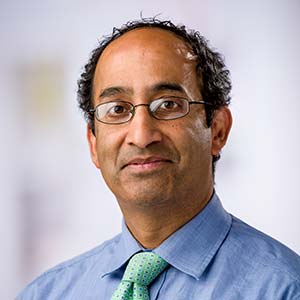
Manoj P. Menon, MD, MPH
Associate Professor, Vaccine and Infectious Disease and Clinical Research Divisions
Program Director, Hematology-Oncology Fellowship, University of Washington
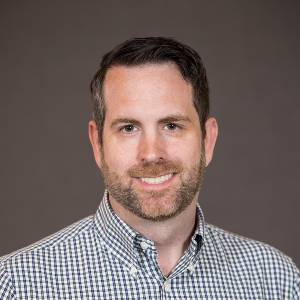
Stuart Tenney
Senior Director of Finance and Operations, Global Oncology, Research Administration, and Shared Resources
Uganda Cancer Institute - Fred Hutch Collaboration Leadership
Scientific Leadership
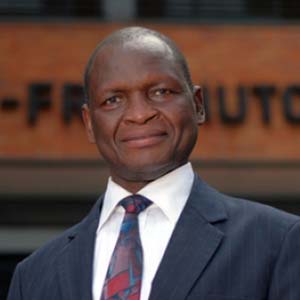
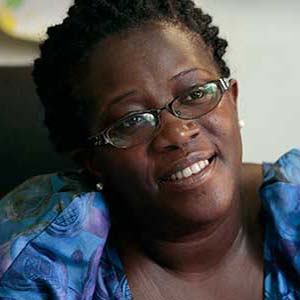
Victoria Walusansa, MBChB, MMed
Deputy Director, Uganda Cancer Institute
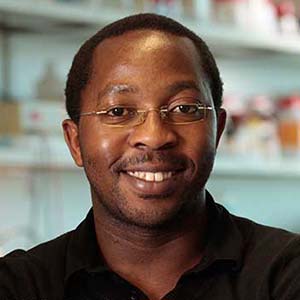
Nixon Niyonzima, MBChB, MMed, MSc, PhD
Head, Research and Training, Uganda Cancer Institute

Edus H. Warren, MD, PhD
Global Oncology Head
Professor, Program in Immunology, Clinical Research Division
Professor, Vaccine and Infectious Disease Division

Warren T. Phipps, MD, MPH
Medical Director, UCI-Fred Hutch Collaboration, UCI / Hutchinson Center Cancer Alliance
Associate Professor, Vaccine and Infectious Disease Division
Attending Physician, Infectious Disease Consulting Service, Vaccine and Infectious Disease Division
Administrative Leadership
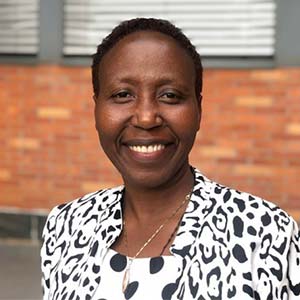
Magdalene Kintu
Director, Administration and Operations, HCRI-Uganda

Stuart Tenney
Senior Director of Finance and Operations, Global Oncology, Research Administration, and Shared Resources

Our five strategic goals for FY22 - FY27 are:
- Develop cancer diagnostics, evaluate therapies suited for low-resource settings, and elucidate the pathogenesis of globally important cancers
- Expand our research portfolio characterizing the burden and management of infectious diseases in cancer
- Collaborate with the Uganda Cancer Institute to build research, clinical care and research administration capacity through training and infrastructure development
- Expand our research portfolio by engaging new faculty and exploring collaborations with institutions or research networks
- Implement the principles of diversity, equity and inclusion in all aspects of research and operations
Research and Collaboration
8
6
3
9
5
12
3
5
12
8
UCI-Fred Hutch Collaboration Training Metrics
2
Fellows earned their PhD
14
Long-term HIV-associated malignancies trainees, including 6 current PhD fellows
4
Current Adult Hematology Oncology Fellows, including two new fellows
2
Fellows graduated from Adult Hematology Oncology Fellowship Program
25
Publications that were independent research by UCI-Fred Hutch Fellows and/or UCI collaborators
27
Research-in-progress seminars
400+
Tumor boards
12
Clinical case and teaching conferences reaching 383 attendees
16
Researcher Training Sessions
UCI-Fred Hutch Cancer Centre Metrics
34,227
Outpatient Visits
9,255
Combined adult and pediatric infusions
12,000+
Biospecimens processed
New Awards
Cancer Genomics and Genomic Data Science for East Africa
PI: Jackson Orem, MBChB, MMed, PhD (UCI)
Edus H. Warren, MD, PhD (Fred Hutch)
$1.25M
NIH D43
Award Period (5-year): July 1, 2022 – June 30, 2027
Establishing capacity to conduct respiratory pathogen studies at the UCI-Fred Hutch Cancer Centre
PI: Warren T. Phipps, MD, MPH (Fred Hutch)
Michael Boeckh, MD, PhD (Fred Hutch)
$60K
VIDD Faculty Initiative Program
Award Period: June 30, 2023 – December 31, 2023
Colonization with drug resistant bacteria in Ugandan patients with cancer and HIV
PI: Elizabeth Gulleen, MD (Fred Hutch)
Warren T. Phipps, MD, MPH (Fred Hutch)
$110K
Center for AIDS Research, New Investigator Award
Award Period: July 31, 2024 – July 31, 2025
University of Washington / Fred Hutchinson Center for AIDS Research
PI: Connie Celum, MD, MPH (UW)
Site PI: Manoj P. Menon, MD, MPH (Fred Hutch)
$700,666
UW - NIH/NIAID, P30 Subaward
Award Period: June 1, 2023 – May 31, 2028
Neutralizing antibody discovery for Kaposi sarcoma associated herpesvirus
PI: Andrew McGuire, PhD (Fred Hutch)
Jim Boonyaratanakornkit, MD, PhD (Fred Hutch)
Warren T. Phipps, MD, MPH (Fred Hutch)
$60K
VIDD Faculty Initiative Program
Award Period: July 1, 2023 – June 30, 2024
Financial Summary
Global Oncology Operating/
Non-Sponsored Budget (Actuals)

Active Sponsored Awards
in FY23*

*Entire project year reflected, even if it overlaps with other fiscal years.
Research Highlights
During FY23, our investigators and collaborators led several studies, including research on Kaposi sarcoma, breast cancer and lymphoma as well as on infections in cancer patients. We are conducting research on cancer diagnostics and building a cancer genomics program. Learn more about this research, upcoming studies and publication highlights.
Research Portfolio Overview
Our scientific portfolio involves research on various cancers, including breast cancer, Kaposi sarcoma (KS), lymphomas, leukemia, lung cancer, nephroblastoma and cervical cancer. Our investigators also study infections seen in cancer patients and viruses associated with cancers, such as HIV, human herpesvirus-8 (HHV-8), also called Kaposi sarcoma Herpesvirus (KSHV), neutropenic fever and antimicrobial resistance. Our Global Oncology faculty collaborate with several UCI physician-scientists and research fellows, Fred Hutch faculty and researchers from other institutions.
During FY23, we opened three studies, including two studies funded by our program’s pilot grant initiative for Fred Hutch faculty and another study on neutropenic fever among UCI patients with cancer and HIV. At the close of the year, we were enrolling patients in nine open studies in Uganda and have five studies in the research pipeline with initial regulatory approval. Under the research operations leadership of Jacqueline Asea, clinical trials director of HCRI-Uganda, our study teams cross-train on all protocols to provide backup support for each study. Although we study several cancers or disease areas, a few cancers and diseases of continued research focus are breast cancer, KS, lymphomas and infections associated with cancers.

Building a Cancer Genomics Research Program
Increasingly, several studies and our newest training program focus on cancer genomics – a field of study that can transform cancer research and clinical care, from prevention to diagnosis to treatment. Currently, there is a dearth of cancer genomics research and data from sub-Saharan Africa1, 2. Enhancing cancer genomics and molecular testing in Uganda and the region can improve how cancer is diagnosed, evaluate and inform targeted therapies and improve overall cancer outcomes.


In 2021, World Health Organization Director General Tedros Adhanom Ghebreyesus, PhD, launched a WHO Science Council to advise on priority issues and scientific or technological advances that could improve global health.3 A year later, the council released their first report and recommendations to the director general on "accelerating access to genomics for global health."4
The report emphasized the importance of international partnerships to promote access and application of genomics in LMICs – in which our UCI-Fred Hutch Collaboration is undertaking great efforts to do so.
"It is already clear that genomics can make enormous contributions to human health, from surveying populations for infectious agents, such as the virus that causes COVID-19, to predicting and treating a wide variety of diseases, such as cancers and developmental disorders. Attention to equity in deploying these technologies is essential for achieving the immense potential benefits to human health."5
Professor Harold Varmus, the Council’s Chair and a Nobel Laureate and former Director of the U.S. National Institutes of Health.
We are studying the application of liquid biopsy – a blood test that detects cancer cells or cancer DNA in the blood – to improve cancer diagnostics and monitoring. Our investigators and lab researchers are using sequencing technologies and analyzing genomes to develop a better understanding of cancers seen at the UCI, including breast cancer and Kaposi sarcoma. Through this research, linked with our newest training program focused on cancer genomics and data science in East Africa, we are establishing the foundation to build a robust genomics program at the UCI-Fred Hutch Cancer Centre. There is an urgent need for laboratory-based scientists in the fields of genomics and genomic data science, and we believe this work could help transform oncology in Uganda and East Africa.

"This research (on the somatic mutation profile of breast cancer in Uganda) can offer a better understanding of the mutational profile that can provide biological insights, inform prognosis and serve as a predictive biomarker."
Manoj P. Menon, MD, MPH (Fred Hutch)
Below, we shine a spotlight on the studies that are a part of this growing body of work and the progress over the year. To learn more about the studies below or our other research, email us at globaloncology@fredhutch.org or visit our website.
Principal Investigators: Alice Berger, PhD (Fred Hutch) and Nixon Niyonzima, MBChB, MMed, MSc, PhD (UCI)
Co-Investigators: Gavin Ha, PhD (Fred Hutch), Manoj P. Menon, MD, MPH (Fred Hutch), Alex Bakenga, MBChB, MMed (UCI), and Sitapriya Moorthi, PhD (Fred Hutch)
The study team aims to understand if a liquid biopsy can be used for diagnosis and biomarker profiling in Ugandan lung cancer patients. Specifically, they seek to compare circulating tumor DNA (ctDNA) sequencing to standard histopathologic diagnoses of lung cancer in patients with advanced-stage lung cancer at UCI. They will determine the prevalence of detectable ctDNA in 35 patients with confirmed lung cancer, prior to therapy. Further, the team will describe the tumor-specific molecular alterations present in lung cancer specimens and ctDNA in advanced-stage lung cancer patients at UCI. They will detect common cancer-associated mutations with a lung cancer next-generation sequencing panel and describe the frequency of EGFR mutations and other targetable mutations for the first time in the Ugandan population. The study opened to accrual in November 2022 and 40% of patients were enrolled by the end of the fiscal year (24/60). Berger was awarded a Global Oncology Pilot Grant in 2019 to fund this study.
Principal Investigators: Manoj P. Menon, MD, MPH (Fred Hutch) and Jackson Orem, MBChB, MMed, PhD (UCI)
Co-Investigators: Nixon Niyonzima, MBChB, MMed, MSc, PhD (UCI), Eric Konnick, MD, MS (UW), Alex Bakenga, MBChB, MMed (UCI), and Barbra Natukunda, MBChB, MMed (UCI)
Breast cancer is the most common cancer in sub-Saharan Africa. Poor survival outcomes compared with resource-rich settings may be due to factors such as presentation at late stages of cancer and limited diagnostic and therapeutic options in less-resourced settings. Application of next-generation sequencing (NGS) to cancer specimens in the U.S. and other resource-rich settings has identified new molecular mechanisms, however, NGS has generally not been applied to tumors in sub-Saharan Africa. This study enrolled 100 people with a new diagnosis of invasive breast cancer at the UCI between April 2018 to July 2021, in which a biopsy specimen of the tumor tissue was obtained and processed at the UCI-Fred Hutch Cancer Centre and sequenced using the clinically-validated UW-OncoPlex in Seattle. All cases were successfully sequenced, with 96% of cases demonstrating somatic mutations (changes occur in the sequence or organization of DNA during a person’s lifetime), even without employing specific enrichment strategies commonly used in high-income countries. Prevalence of BRCA2, TP53, and PIK3CA mutations in Ugandans with breast cancer are considerably higher than other documented populations. This research [on the somatic mutation profile of breast cancer in Uganda] can offer a better understanding of the mutational profile that can provide biological insights, inform prognosis and serve as a predictive biomarker. Further, these data can lead to changes of targeted therapeutics that are included in the WHO Model List of Essential Medicines to help reduce health disparities. Menon presented these findings at the 2023 ASCO Annual Meeting and was interviewed by ecancer at ASCO about this study.
Principal Investigators: Manoj P. Menon, MD, MPH (Fred Hutch), Jackson Orem, MBChB, MMed, PhD (UCI), and Nixon Niyonzima, MBChB, MMed, MSc, PhD (UCI)
Co-Investigators: Dr. Alex Bakenga, MBChB, MMed (UCI) and Barbra Natukunda, MBChB, MMed, (UCI)
Building on results from the above study that defined the molecular profile of breast cancer in Uganda and its clinical implications, the need for accurate and low-cost diagnostics is critical. In this prospective, observational study, the team is utilizing Cepheid’s GeneXpert’s real-time PCR and STRAT4 assay that measures estrogen receptor (ER), progesterone receptor (PR), HER2 and Ki62 to evaluate the potential to accurately diagnose the hormone receptor and HER2 status of patients diagnosed with breast cancer in Uganda. They aim to evaluate the clinical utility, feasibility, sensitivity and specificity of the STRAT4 assay to detect the presence of ER, PR and HER2 in core needle biopsy specimens and in fine-needle aspiration biopsy (FNA) specimens of patients with breast cancer at the UCI. Finally, the investigators aim to assess the concordance between the STRAT4 results obtained on a core needle biopsy specimen with the STRAT4 results obtained on an FNA specimen. At the end of June 2023, more than 75% of the patients were enrolled in the study (target enrollment is 100 people).
Principal Investigators: Manoj P. Menon, MD, MPH (Fred Hutch) and Nixon Niyonzima, MBChB, MMed, MSc, PhD (UCI)
Co-Investigators: Scott Adams, PhD, MP, (VA Puget Sound Health Care System), Andrea Towlerton (Fred Hutch), and Molly Tokaz, MD (University of Washington)
With funding from the Susan G. Komen Foundation, the study team will evaluate liquid biopsy as an effective tool in the diagnosis and monitoring of people with metastatic breast cancer in Uganda. The ability to accurately diagnose and monitor response to therapy in a minimally invasive approval is critical in a limited-resource setting. If successful, the team anticipates that patients will be diagnosed and treated earlier, thereby reducing the health disparities between people with breast cancer in Uganda and in the U.S. At the end of the fiscal year, this study had initial regulatory approval and the goal is to open in FY24.
Principal Investigators: Warren T. Phipps, MD, MPH (Fred Hutch) and Jackson Orem, MBChB, Mmed, PhD (UCI)
Co-Investigator: Edus H. Warren, MD, PhD (Fred Hutch)
KSHV is the infectious cause of Kaposi sarcoma — one of the most common cancers in Africa, and especially among people living with HIV. In an observational, prospective cohort study, the study team is defining the relationship between HHV-8 replication and KS treatment outcomes and evaluating the potential of HHV-8 to serve as a prognostic biomarker in people with KS. One of the current aims is to characterize effective T-cell responses to KS and KSHV. The study team conducted T-cell repertoire profiling and RNA sequencing of tumor biopsies from 108 patients with KS (82 with concurrent HIV infection and 26 without HIV infection). Findings revealed that the KS tumor microenvironment – the environment around a tumor such as blood vessels and normal cells – is dominated by oligoclonal CD8+ T cells and immunosuppressive macrophages with M2 polarization. Tumor-infiltrating lymphocytes in KS tumors carry the signature of a variably dysfunctional response against unknown antigens, likely to be derived from HHV-8. Single-cell RNA sequencing of putative HHV-8 specific T cells were found in high frequency KS tumors and can also be found in peripheral blood and variably express markers of both acute and chronic activation.
Related to this research, Andrea Towlerton, laboratory director at the UCI-Fred Hutch Cancer Centre, presented, "CD8+ T Cells and M2 Macrophages Dominate the Microenvironment in Kaposi Sarcoma Tumors from Uganda," at the 25th International Conference on Kaposi’s Sarcoma Herpesvirus and Related Agents (KSHV) in June 2023 in Dar es Salaam, Tanzania. Further, Shashidhar Ravishankar, bioinformatics analyst of the Warren Lab, presented, "Integrated TCR Repertoire Analysis and Transcriptional Profiling Identify a Systemic T-Cell Response in Kaposi Sarcoma" at the same conference.
In a related study under this protocol, the investigators performed whole exome sequencing on 78 KS tumors and matched normal controls from 59 adults with KS (including 46 HIV-positive KS tumors and 13 HIV-negative KS tumors). These were mapped and analyzed using computational pipelines for DNA alterations. The average number of mutations were 17 and only one specimen had over 400 mutations. Findings showed that KS tumors have low mutational burden and no recurrent cellular genetic alterations, which suggests that KSHV or other associated factors is the main driver of KS tumorigenesis. Warren T. Phipps, MD, MPH, and Ethel Cesarman, MD, PhD (Weill Cornell), presented findings at the 18th International Conference on Malignancies in HIV/AIDS in October 2022.
Finally, ongoing and new research continues as part of a prospective study of treatment-naïve adults with KS initiating therapy at the UCI who are followed for up to one year to evaluate KS response to treatment with ART and chemotherapy. With supplemental funding, the research team aimed to evaluate the effect of the COVID-19 pandemic on access to cancer and HIV care at the UCI and resulting impact on KS disease progression, in which findings showed that 75% of participants surveyed (21/28) reported delays and less than a quarter reported routine treatment interruptions. Additionally, in the next phase, the team will assess the impact of SARS-CoV-2 infection on the transcriptional profile of immune cells in KS tumors from adults with HIV and adults without HIV.
Principal Investigators: Joyce Kambugu, MBChB, MMed, CMO Paed (SA) (UCI) and Soheil Meshinchi, MD, PhD (Fred Hutch)
Co-Investigators: Clement D. Okello, MBChB, MMed, (UCI), Fadhil Geriga, MBChB, Mmed (UCI), Henry Ddungu, MBChB, Mmed, PhD (UCI), Jackson Orem, MBChB, Mmed, PhD (UCI), Katherine Tarlock, MD (Seattle Children’s), Cecilia Yeung, MD (Fred Hutch), and Andrea Towlerton (Fred Hutch)
This is a prospective study of all patients enrolled with acute leukemias at the UCI, including each patient’s diagnosis, therapy, response to therapy, treatment toxicity and outcome. The study team is developing infrastructure for clinical sequencing and a plan at the UCI for the rapid transition into clinical implementation upon assay validation. The study opened to accrual in September 2022 and had enrolled over a quarter of participants at the end of the fiscal year (54/200). Meshinchi was awarded a Global Oncology Pilot Grant in 2019 to fund this study.
Below is a list of other studies in our research portfolio during FY23.
- Principal Investigators: Margaret Lubwama, MBChB, Mmed (UCI-Fred Hutch NIH D43 Fellow, Makerere University) and Warren T. Phipps MD, MPH (Fred Hutch)
- Principal Investigators: Manoj P. Menon, MD, MPH (Fred Hutch), Henry Ddungu, MBChB, Mmed, PhD (UCI), Joyce Balagadde Kambugu, MBChB, MMed, CMO Paed (SA), (UCI), and Jackson Orem, MBChB, Mmed, PhD (UCI)
- Principal Investigators: Warren T. Phipps MD, MPH, Fadhil Geriga, MBChB, Mmed (UCI), and Joshua Schiffer, MD, MSc (Fred Hutch)
- Principal Investigators: Fadhil Geriga, MBChB, Mmed(UCI) and Soheil Meshinchi, MD, PhD (Fred Hutch)
- Co-Investigators: Joyce Balagadde Kambugu, MBChB, MMed, CMO Paed (SA), (UCI), Jackson Orem, MBChB, Mmed, PhD (UCI), and Scott Adams, PhD, MPH (VA Puget Sound Health Care System)
- Principal Investigator: Noleb Mugisha, MBChB, MPH, MMed (UCI)
- Co-Investigators: Dan Kaye, PhD (Makerere University), Lynn Atuyambe (Makerere University), Ruanne Barnabas, MBChB, MSc, (University of Washington), and Warren T. Phipps MD, MPH (Fred Hutch)
- Principal Investigators: Warren T. Phipps MD, MPH (Fred Hutch), Elizabeth Gulleen, MD (Fred Hutch), and Jackson Orem, MBChB, MMed, PhD (UCI)
- Co-Investigators: Johnblack Kabukye, PhD, MBChB, MSc (UCI) and Catherine Liu, MD (Fred Hutch)
*Studies opened in FY23
- Principal Investigators: Manoj P. Menon, MD, MPH and Nixon Niyonzima, MBChB, MMed, MSc, PhD
- Principal Investigators: Warren T. Phipps MD, MPH and Innocent Mutyaba, MBChB, MMed
- Principal Investigators: Warren T. Phipps MD, MPH and Elizabeth Gulleen, MD
- Principal Investigators: Manoj P. Menon, MD, MPH
- Principal Investigator: Cecilia Yeung, MD
FY23 Global Oncology Pilot Award
In FY23, we awarded a Global Oncology Pilot Grant to Shailender Bhatia, MD, professor in the Clinical Research Division. In a phase 2 trial, Bhatia and co-investigators will prospectively investigate low-dose and reduced-frequency dosing nivolumab strategy for the treatment of patients with selected cancer types that are deemed responsive to PD-1 blockade, including cervical cancer, triple-negative breast cancer and lung cancer at UCI.
If successful, the novel regimen can markedly reduce the cost of immune checkpoint inhibitors therapy by >100-fold - from $250,000 to less than $2,500 for one year of treatment and potentially improve access to immunotherapy in low-income countries. Ultimately, this could significantly improve the survival of cancer patients. Manoj P. Menon, MD, MPH, is co-principal investigator. Co-investigators include Fred Okuku, MBChB, MMed (UCI), Nixon Niyonzima, MBChB, MMed, MSc, PhD (UCI), Lisa Tachiki, MD (Fred Hutch), John Harlan, MD (UW), Edus H. Warren, MD, PhD (Fred Hutch), and Ted Gooley, PhD (Fred Hutch).

Research to Publication
During FY23, Global Oncology faculty and our Ugandan collaborators published 12 articles (5 articles with Ugandan and US authors; 7 Fred Hutch faculty only). There were an additional 25 independent research articles published by Ugandan trainees/fellows or UCI research collaborators. Select journal articles are below.
Santiago JC, Westfall DH, Adams SV, Okuku F, Phipps W, Mullins JI. Variation within major internal repeats of KSHV in vivo. Virus Evol. 2023;9(1):vead034. Published 2023 May 22. doi:10.1093/ve/vead034
Phipps W, Adams SV, Mooka P^, Kafeero J, Sekitene S, Mubiru D, Nankoma J^, Namirembe C^, Okoche L^, Namubiru E^, Kayemba S, Baker KK, Redman MW, Casper C, Orem J, & Warren EH. A prospective study of clinical outcomes of HIV-associated and HIV-negative Kaposi sarcoma in Uganda. AIDS. 2023;37(1):51-59. doi:10.1097/QAD.0000000000003376
Santiago JC, Adams SV, Towlerton ACenterNet Forms MigrationCenterNet Forms Migration, Okuku F, Phipps W, Mullins JI. Genomic changes in Kaposi Sarcoma-associated Herpesvirus and their clinical correlates. PLoS Pathog. 2022;18(11):e1010524. Published 2022 Nov 28. doi:10.1371/journal.ppat.1010524
Gulleen EA, Lubwama M*, Komakech A^, Krantz EM, Liu C, Phipps W. Knowledge and perceptions of antimicrobial resistance and antimicrobial stewardship among staff at a national cancer referral center in Uganda. Antimicrob Steward Healthc Epidemiol. 2022;2(1):e54. Published 2022 Apr 6. doi:10.1017/ash.2022.28
Okello CD, Meshinchi S, Tarlock K, Warren EH, Towlerton AMH^, Ddungu H, Mulumba Y, Geriga F*, Orem J, Balagadde JK. Clinical Outcome and Treatment-Related Mortality in Patients with Acute Myeloid Leukemia Treated at the Uganda Cancer Institute. Blood 2022; 140 (Supplement 1): 8940–8941. Published 2022 November 15. doi: https://doi.org/10.1182/blood-2022-165982
Bold = Fred Hutch Global Oncology Faculty
Underline = UCI Collaborators
* = Current UCI-Fred Hutch Collaboration Trainee/Fellow
Italics = U.S. Research Fellow
^ = Global Oncology or HCRI-Uganda staff
Bold Italics = Fred Hutch Faculty Collaborator
Scientific and clinical training remain core activities of the UCI-Fred Hutch Collaboration, primarily through two, active NIH-funded training grants and the Adult Hematology-Oncology Fellowship Program. The UCI hosts daily tumor boards on a range of cancers as well as a bi-weekly Lymphoma Tumor Board led by Edus H. Warren, MD, PhD, and Andrea Towlerton, laboratory director. Through the various training programs and activities, including a monthly clinical conference, we collaborate with the UCI, invited clinicians and experts at UCI, Makerere University, Fred Hutch and University of Washington. Several fellows from our different training programs contribute to and participate in clinical conferences and tumor boards, which both applies and strengthens their clinical expertise.


NIH D43 Training Program in Cancer Genomics and Data Science
The WHO Science Council advocates for organizations to develop programs to train individuals in order to make effective use of genomic technologies, which is critical to improve population health globally.6 In FY23, the UCI-Fred Hutch Collaboration’s co-directors, Jackson Orem, MBChB, MMed, PhD (UCI) and Edus H. Warren, MD, PhD (Fred Hutch), launched the most recent NIH-funded training program that will train Ugandan and East African graduate students in genomics and informatics to build capacity for high-quality cancer research, training and clinical care in the East Africa region. The $1.25 million, five-year award started on July 1, 2022, and builds upon research that explores the genomics of breast cancer, lung cancer, non-Hodgkin lymphoma and KS. To date, we have received 200 applicants from five East African countries. Fellows selected for the program will train at the UCI-Fred Hutch Cancer Centre and Makerere University in partnership with the Infectious Disease Institute, and at Fred Hutch in Seattle. This training program ties in closely with our researchers increasing focus on cancer genomics for diagnostics and ultimately to inform precision medicine approaches.
NIH D43 Training Program on HIV-Associated Malignancies
The five-year program trains Ugandan scientific leaders who are conducting HIV-associated malignancies (HIVAM) research through doctoral programs and fellowships. This program, and previous iterations, fosters a community of scientists and research leaders who will cultivate and train the next generation of HIVAM researchers. It aims to support the fellows in securing independent research funding to launch them to become independent investigators.
This year, two fellows graduated from their PhD programs, Emmanuel Seremba, MBChB, MMed, PhD, and Henry Ddungu, MBChB, MMed, PhD. Seremba is an honorary senior lecturer in the Department of Medicine within the College of Health Sciences at Makerere University who focuses on strategies to prevent Hepatitis B viral infections among HIV-infected adults. Ddungu is currently a hematologist and director of laboratory operations at UCI.
In the current program, there are six PhD fellows with the UCI-Fred Hutch Collaboration:
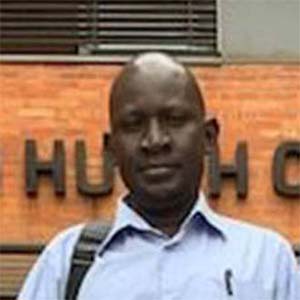
Fadhil Geriga
MBChB, MMed, Associate Director, Pediatric Oncology, UCI
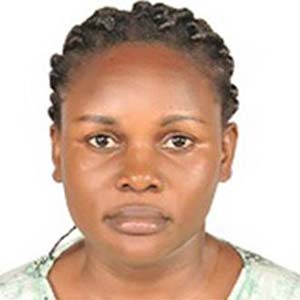
Priscilla Namaganda
MBChB, MMed, Medical Oncologist, UCI
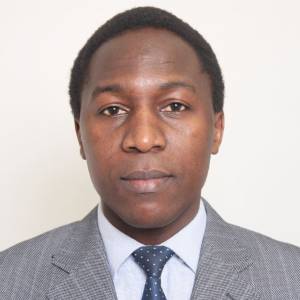
Solomon Kibudde
MBChB, MMed, Radiation Oncologist, UCI
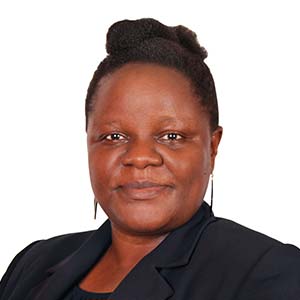
Margaret Lubwama
MBChB, MMed, Medical Microbiologist, Makerere University College of Health Sciences
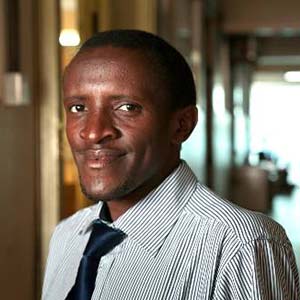
Noleb Mugisha
MBChB, MPH, MMed, Head of the Comprehensive Community Cancer Program, UCI
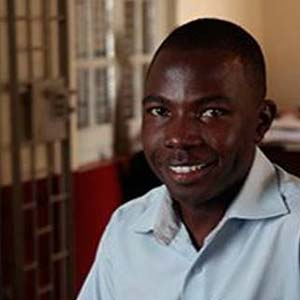
Innocent Mutyaba
MBChB, MMed, Oncologist, UCI

"Doing a PhD that involves studying the characteristics of bacteria isolated from cancer patients with infection, I wondered how far I could go. I am excited to see how far I have come. Putting the data together and telling the infection story at the UCI has been fulfilling. Perhaps the evidence I’ve gathered throughout my PhD will speak into policies which aim to reduce the burden of infections caused by multidrug resistant bacteria at the UCI."
Margaret Lubwama, Medical Microbiologist, Makerere University College of Health Sciences and PhD Fellow, UCI-Fred Hutch Collaboration
In April 2023, Geetha Bansal, PhD, MSc, program officer for the Division of International Training and Research for the Fogarty International Center (FIC) of the National Institutes of Health, visited the UCI-Fred Hutch Collaboration teams in Kampala. Bansal’s goal was to provide a follow-up visit to NIH D43 programs and learn about the fellows’ research and training. Several trainees and junior investigators participated. Mugisha presented his current study, "Integrating cervical cancer screening in HIV clinics and assessing the effects of using a modified referral protocol on access to cancer services among HIV-positive women in Uganda." Bansal also gave a seminar on career development and FIC training opportunities, including the K43 grants.

"I take immense pride in my PhD training environment, which has provided me with invaluable support including access to learning resources, mentorship seminars, opportunities to present my research, a regular stipend, and most importantly, guidance from experts. The highlight of this experience was the presentation of my proposal to the Department of Medicine (Makerere University), where my supervisors demonstrated their commitment and confidence in me."
Solomon Kibudde, PhD Fellow, UCI-Fred Hutch Collaboration
Our fellows were also active in presenting their research at or attending scientific conferences. Lubwama presented a poster of findings of her research on infectious hematologic malignancies at the 4th Symposium on Infectious Diseases in the Immunocompromised Host in late April to early May 2023 in Seattle, Washington. Geriga attended and presented an abstract at the 25th International Conference on KSHV in Dar es Salaam, Tanzania in June 2023. Geriga presented, "Clinical presentation and outcomes of children with Kaposi Sarcoma in the ART Era in Uganda." Other Fred Hutch Global Oncology colleagues also attended the conference.
A local affinity group was launched to discuss implementation science, a growing area of research and interest among some colleagues in Kampala and Seattle. In April 2023, nearly 40 participants in Uganda completed University of Washington’s Fundamentals of Implementation Science e-course.
The NIH D43 training programs are managed by HCRI-Uganda training project manager, Olive Birungi. The HIVAM program is overseen by Warren T. Phipps MD, MPH, medical director of the UCI-Fred Hutch Collaboration, and the cancer genomics training program is overseen by Jackson Orem, MBChB, MMed, PhD and Edus H. Warren, MD, PhD.
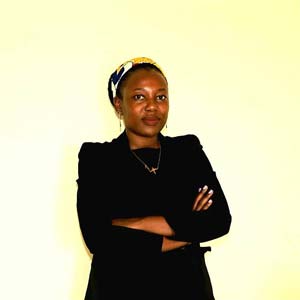
Monthly Newsletter
Contact Olive Birungi if you would like to receive the monthly training program's newsletter.
East African Adult Hematology Oncology Fellowship
Launched in 2018 with funding from the African Development Bank to the East Africa Centre of Excellence in Oncology at the UCI, the Adult Hematology Oncology Fellowship Program continued in its fifth year. The program’s goal is to train the next generation of hematologists and hematology-oncologists in Uganda and East Africa. Since the program launched, six Ugandan fellows have graduated, and two new fellows started training in 2023. Fred Hutch and UW faculty visit the UCI regularly to provide in-person lectures and mentorship. Each week, the AHO fellows view live-streamed lectures by Fred Hutch and UW faculty when they are not there in person. These lectures are part of the core series for AHO fellows and are recorded so that they are available "on-demand" for the fellows. In early FY23, the Uganda Medical and Dental Practitioners Council, the governing authority for subspecialty training, certified the AHO Fellowship Program along with the pediatric and gynecologist training programs at UCI.
Naghib Bogere, MBChB, MMed and Erick Were, MBChB, MMed, graduated from the program in November 2022 and both received a scholarship to attend the 2023 ASCO Annual Meeting in Chicago. The newest fellows, Barbra Natukunda, MBChB, MMed and Annet Laker, MBChB, MMed, started training in March 2023. Anne Amate, MBChB, MMed, and Kenneth Kintu, MBChB, MMed, continued their fellowship in the medical oncology track. The AHO Fellowship Program is co-directed by Abrahams Omoding, MBChB, MMed, of UCI, and John Harlan of UW. Learn more about the AHO Fellowship or visit UCI’s website.
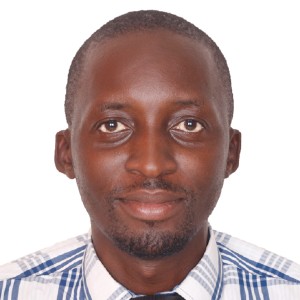
Erick Were, MBChB, MMed, AHO Fellow
"I would like to thank the Fred Hutch and UCI for the opportunity to attend the ASCO 2023 conference. It was such a unique opportunity to attend this mega oncology conference with a diversity of presentations. All these presentations were so insightful with several presentations generating possible new treatment/practice recommendations. Additionally, it was amazing seeing more than 20,000 people at the conference all with oncology at the heart, a field that has not yet attracted a lot of people in my home country."
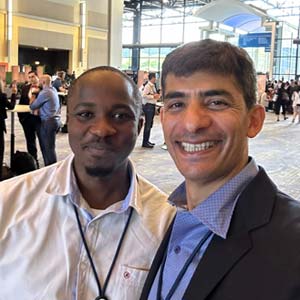
Naghib Bogere, MBChB, MMed, AHO Fellow
"I was particularly moved by the presence of patients who had come solely to find out about new advances in cancer care and provide feedback to their attending oncologists. It reinforced the importance of empowering patients with knowledge and involving them as active partners in their treatment decisions. ASCO inspired me to stay at the forefront of cancer research, driving me to continuously seek knowledge and improvements in my practice to better serve my patients with the utmost dedication and compassion."
Image: Bogere (left) pictured with Shailender Bhatia, MD, at the 2023 ASCO Annual Meeting
The HCRI-Uganda laboratory team, directed by Andrea Towlerton, continued to provide excellent laboratory services for studies at the UCI-Fred Hutch Cancer Centre and for several tumor boards that support high-quality patient care at the UCI.
Key focuses and achievements this year:
- The Laboratory team implemented new technologies, focusing on liquid biopsies and sequencing technologies, to bolster the program’s genomics research program.
- The molecular diagnostics team onboarded the first long-read sequencing platform using the Oxford Nanopore MinION for antimicrobial resistance pathogen detection which will be an important component to the laboratories growing infectious disease assay portfolio.
- The team saw thousands of qPCR assays performed for HHV8 detection, new immunohistochemistry markers implemented in the histopathology laboratory, and ongoing support of training, tumor boards, and partnerships with various collaborators including Cepheid.
The laboratory team continued SARS-CoV-2 testing as part of the Ministry of Health’s National Testing Program – having performed over 5,000 tests since the start of the program in late 2020. The molecular diagnostics team participates routinely in the World Health Organization’s external quality assessment (EQA) panel and has passed every EQA with a 100% score. As the testing has decreased in volume, the research on the impact of COVID-19 in our patient cohort remains steady. The team continues to maintain certification by the Ministry of Health and WHO to perform the testing. Global Oncology is grateful to the dedicated laboratory team for participating in this critical program during the COVID-19 pandemic, while also diligently supporting the Collaboration’s research portfolio.
The team has started to upgrade equipment, starting with the biorepository with new freezers, refrigerators and liquid nitrogen units are of the highest quality as the team actively processes on average 12,000 biospecimens annually. This is an ongoing process that continues into the next fiscal year with renovations and upgrades of laboratory spaces.
In February, the laboratory team presented at the "Africa Cancer Test and Treat Initiative Conference," in Kampala that was convened by the Ministry of Health in partnership with the Uganda non-Communicable Disease Alliance and the Test and Treat Laboratory Initiative. The theme focused on enhancing cancer awareness, early detection, and diagnosis.

Lastly, the team maintains human subjects, Collaborative Institutional Training Initiative (CITI) certificates, and IATA training certification and manages and supports equipment maintenance to ensure high-quality service and safety. This year the laboratory team each completed their certification course in Implementation Science from the University of Washington.
Staff Travel
In FY23, Fred Hutch and HCRI-Uganda colleagues traveled for site visits to Kampala and Seattle, respectively. After many years and following the end of the COVID-19 pandemic emergency, travel increased and allowed for productive in-person meetings, trainings and broader collaboration. Being able to meet with colleagues face-to-face, who normally work thousands of miles away and across multiple time zones, allows for a better understanding of the systematic and cultural differences that highlight the positive aspects of our international working relationships.
Noreen Muwanguzi, HCRI-Uganda Regulatory Manager, visited Fred Hutch in November. Her goal was to meet with and learn more about the Fred Hutch Institutional Review Office and Institutional Review Board. In-person exposure to Fred Hutch’s policies and procedures is essential to understanding the regulatory requirements from the Fred Hutch side. Also, Ms. Muwanguzi worked with the regulatory team in the Clinical Research Support office to identify ways to optimize regulatory and quality assurance operations at the UCI-Fred Hutch Cancer Centre. She was trained on key online regulatory documentation and study tracking portals that have been extended to the HCRI-Uganda regulatory operations. Finally, she spent time with several researchers who have ongoing studies in Uganda.

Raj Mitra, Fred Hutch IT international business partner, conducted a site visit to the UCI-Fred Hutch Cancer Centre to review IT infrastructure, conduct a staff training, and meet with key focus area leads. Mitra worked closely with Douglas Bugeiga, HCRI-Uganda IT manager, and Lydia Logose, senior IT coordinator, to resolve a long-standing REDCap data capture issue. He also worked with the IT and Data Management team to conduct Microsoft Teams training to allow for easier data sharing and collaboration with researchers in Seattle. Additionally, Mitra and Andrea Towlerton, HCRI-Uganda laboratory director, toured the African Center of Excellence (ACE) in Bioinformatics to understand ACE’s computational biology and data storage capabilities for potential collaborations. This capability would support Global Oncology’s efforts to develop its genomics laboratory by using local resources rather than rely on sending large amounts of research data to Seattle for analysis.
Four staff members from HCRI-Uganda visited Fred Hutch and met with several colleagues. The visitors included:
- Magdalene Kintu - Director, Administration and Operations
- Andrew Okot - Human Resources and Operations Manager
- Douglas Bugeiga - Information Technology Manager
- Constance Namirembe - Clinical Research Project Manager II
The purpose of this visit was to connect with key stakeholders in their specific areas and to meet with other leaders across Fred Hutch to further understand administration and research operations that can be implemented in Kampala. The visit helped to identify areas where HCRI-Uganda can optimize business operations and communication across time zones.
Facility Operations
The UCI saw over 30,000 outpatients at the UCI-Fred Hutch Cancer Centre in FY23. The primary cancers seen were hematological malignancies, prostate, sarcoma, breast, lung and cervical. All UCI outpatient pediatric cancer patients are seen at the facility.
In fiscal year 2023, HCRI-Uganda, in collaboration with the Fred Hutch facilities team, ended a multi-year engagement with a third party that provided facility management at the UCI-Fred Hutch Cancer Centre. Magdalene Kintu, director of Administration and Operations at HCRI-Uganda, and Edwin Schoneck, associate director of Facilities and Engineering at Fred Hutch, were critical to this decision. After careful review, the team determined it was a better investment to bring this support inside the program, and therefore, in the fall of 2022, four HCRI-Uganda facility team members were hired. Since this change, procurement, stores management, equipment preventative maintenance and reporting operations have improved.
HCRI-Uganda’s sister company, Hutchinson Centre Research Institute of South Africa (HCRISA), solicited assistance from the Fred Hutch facilities team in assessing their emergency backup power systems – a recognition of the expertise of the Kampala-based team. In June 2023, the HCRI-Uganda facility manager and engineer traveled to Cape Town, South Africa, and worked closely with the HCRISA research and laboratory staff, equipment vendors and an outside facility consultant to evaluate HCRISA’s power systems. After the two-day visit, the Uganda team delivered a concise but detailed site assessment with short-, medium- and long-term solutions that was well received by the HCRISA staff.
"When I finally was able to visit the site, what I found was that the training provided was being utilized … and without a doubt, the team works with one another. This has led to reduced involvement on the Seattle side and comfort levels with management in their decision-making process."
Edwin Schoneck, Associate Director of Facilities and Engineering, Fred Hutch



Ebola Incident Command
On September 20, 2022, Uganda declared an Ebola virus disease (EVD) outbreak. There were 164 cases (143 confirmed and 22 probable), 55 confirmed deaths and 87 recovered patients. After nearly four months, Uganda declared an end to the outbreak on January 11, 2023.7
In response to the outbreak, Global Oncology and HCRI-Uganda quickly initiated an incident command task force. The task force worked closely with various stakeholders at Fred Hutch and with the UCI Ebola task force to adapt our SARS-CoV-2 risk mitigation plans. Travel to and from Uganda was restricted and non-critical staff were initially moved to telework status. The task force implemented a symptom screening tool for any staff or visitor to the UCI-Fred Hutch Cancer Centre. The teams closely monitored case data along with contextual reports from WHO, African CDC and Uganda Ministry of Health, and used this information to inform daily operations. The Global Oncology Program provided regular operational updates to the Fred Hutch Director’s Office. The HCRI-Uganda team also developed a series of EVD trainings and appropriate responses. As a result of these collaborative efforts, there were no EVD cases or probable exposures identified at the UCI-Fred Hutch Cancer Centre. Thanks to the strong foundation laid by the response to SARS-CoV-2, research and clinical operations were only minimally impacted.
Team Spotlight
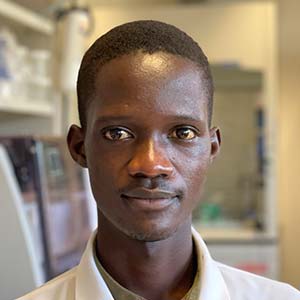
Dan Baluku, Laboratory Technician, HCRI-Uganda
"In FY23, being a part of the HCRI-U Laboratory has been an immensely fulfilling and rewarding experience. Working with a dedicated lab director and colleagues has enhanced my skills and deepened my passion for advancing oncology research. Being part of a team dedicated to finding innovative solutions in the fight against cancer has been truly inspiring. Looking ahead to FY24, I am eagerly anticipating the opportunity to delve deeper into innovative science and technologies. Am extremely positive about the potential our ongoing projects will have on improving patient outcomes."
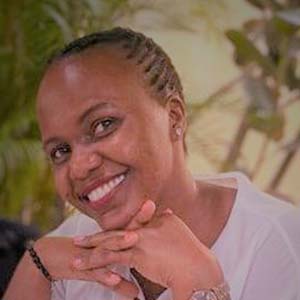
Rosemary Namagembe, Clinical Research Coordinator, HCRI-Uganda
"I am intrigued by the unique and diverse nature of human beings. In the FY23, the HCRI-U team had a training on Diversity Equity and Inclusion. This helped many of us realize that with diversity comes strength, creativity, and an appreciation of the unique skill set that we all bring to the team and organization. I am looking forward to working with and learning from the different staff members given our different points of view while paying special attention to the values of Fred Hutch and the part they play in the success of our day-to-day interaction with the staff, collaborators, and study participants."
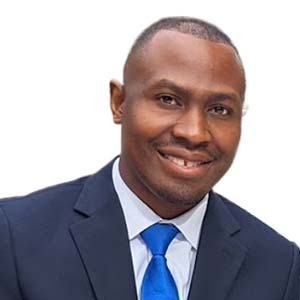
Albert Mucunguzi, Facility Manager, HCRI-Uganda
"Facilities Management keeps the places we work, live, and play running, beautiful, comfortable, and safe. What a noble vocation!"
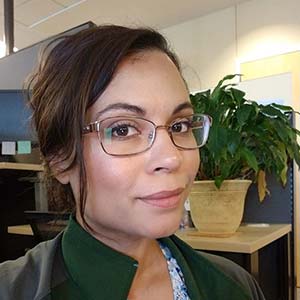
Jaime Taylor, Financial Analyst, Global Oncology
"I have been with Fred Hutch Accounting since 2005 and joined Global Oncology in fall of 2022. I help oversee financial management locally, support the HCRI-Uganda Finance Manager abroad and am involved with vendor and contract management. I’m very excited to join the Global Oncology Team and to work more closely with the program’s research."
Community and Events
Diversity, Equity and Inclusion: Operations to Research
Magdalene Kintu, director of Administration and Operations at HCRI-Uganda, in collaboration with Paul Buckley, PhD, vice president and chief Diversity and Inclusion officer, engaged with a local DEI consultant. The Uganda-based consultant led a training and introduction to DEI core concepts. Following this initial training, Kintu and Buckley continued their partnership to develop culturally sensitive trainings and discuss next steps to bring these values into local operations.
The Global Oncology team continued to participate in discussions and learnings, including sessions led by the Fred Hutch DEI Core and initial conversations with stakeholders from other organizations. The team hopes to continue to learn and define the DEI principles and values from a global perspective, and specifically, as part of a longstanding international research collaboration.
UCI-Fred Hutch Collaboration Featured in the President Joe Biden’s Cancer Moonshot Fact Sheet
In December 2023, the Cancer Moonshot announced new actions to improve cancer outcomes in Africa. The UCI-Fred Hutch Collaboration was featured in the White House Fact Sheet as part of the U.S.-Africa Leaders Summit in Washington D.C. Specifically, our new cancer genomics and data science training program and our longstanding training programs in cancer and related infectious disease research were discussed as part of this announcement. According to the Fact Sheet, "International work as part of the Cancer Moonshot is focused on equity and collaboration, thereby increasing access to prevention, screening, treatment, and care for everyone facing a cancer diagnosis and their families around the world."
Global Oncology Lecture Series
We continued our seminar series to engage experts with diverse experience in cancer research and programs from across the globe. In FY23, we were grateful to have eight experts share their work – from cancer care in India to cancer during political conflict to medical technology to address cancer disparities and more. To view our past seminars or learn about upcoming seminars, visit our Global Oncology events webpage.
Our teams are motivated by the scientific and training achievements accomplished over the year and look forward to the year ahead. We are committed to this work, especially as we reflect on the substantial toll the cancer burden has in low- and middle-income countries, such as Uganda. It is estimated that there will be more than 28 million new cancer cases globally by 2040 — with 19.6 million cases estimated in Asia, Africa, and Latin America and the Caribbean, or roughly 70% of all new cases.8 Our teams look forward to advancing our cancer genomics research, implementing advanced sequencing technologies and supporting our trainees and fellows in their scientific and clinical careers. We also look forward to continuing other critical studies and pursuing new opportunities and expanding our research collaborations with Fred Hutch faculty and other partners. We believe it is critical to pursue our mission and the wider mission and values of Fred Hutch in our everyday work.

Contact Us
Mailing Address
Global Oncology
1100 Fairview Ave. N.
Mail Stop M1-B140
Seattle, WA 98109
1 Sharma K, Mayer T, Li S, Qureshi S, Farooq F, Vuylsteke P, et al. (2023) Advancing oncology drug therapies for sub-Saharan Africa. PLOS Glob Public Health 3(6): e0001653. https://doi.org/10.1371/journal.pgph.0001653. Accessed July 11, 2023.
2 Rotimi, S. O., Rotimi, O. A., & Salhia, B. (2021). Authorship Patterns in Cancer Genomics Publications Across Africa. JCO global oncology, 7, 747–755. https://doi.org/10.1200/GO.20.00552. Accessed July 11, 2023.
3 WHO’s Science Council launches report calling for equitable expansion of genomics. July 12, 2022. WHO Deparmental News. Available at: https://www.who.int/news/item/12-07-2022-who-s-science-council-launches-report-calling-for-equitable-expansion-of-genomics. Accessed July 28, 2023.
4 Accelerating access to genomics for global health: promotion, implementation, collaboration, and ethical, legal, and social issues. A report of the WHO Science Council. Geneva: World Health Organization; 2022. License: CC BY-NC-SA 3.0 IGO. Accessed June 30, 2023.
5 WHO’s Science Council launches report calling for equitable expansion of genomics. WHO Departmental News. 12 July 2022. https://www.who.int/news/item/12-07-2022-who-s-science-council-launches-report-calling-for-equitable-expansion-of-genomics. Accessed June 30, 2023.
6 Accelerating access to genomics for global health: promotion, implementation, collaboration, and ethical, legal, and social issues. A report of the WHO Science Council. Geneva: World Health Organization; 2022. License: CC BY-NC-SA 3.0 IGO. Accessed June 30, 2023.
7 World Health Organization. Ebola Uganda, 2022. https://www.who.int/emergencies/situations/ebola-uganda-2022. Accessed July 11, 2023.
8 Ferlay J, Laversanne M, Ervik M, Lam F, Colombet M, Mery L, Piñeros M, Znaor A, Soerjomataram I, Bray F (2020). Global Cancer Observatory: Cancer Tomorrow. Lyon, France: International Agency for Research on Cancer. Available from: https://gco.iarc.fr/tomorrow. Accessed July 14, 2023.
Authored by: Heather Pitorak, Norma Alcalá, Jason Barrett, Edus H. Warren and with contributions from various colleagues with Fred Hutch, Global Oncology, HCRI-Uganda, and with the UCI-Fred Hutch Collaboration.
Designed by: Theary Chhim and Milly Jeffries